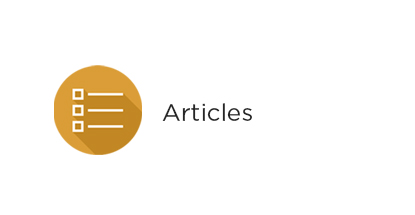
Ethical integrity is the cornerstone of the CPA profession, required of members and students alike. CPA candidates—students in the CPA Professional Education Program (PEP)—are expected to maintain the highest levels of academic honesty during their time in the program, as our accounting education sets the foundation for ethical behaviour among future CPAs.
The CPA Western School of Business (CPAWSB) has a zero-tolerance policy on any instances of academic misconduct. CPA candidates must submit their own original work to CPAWSB and give credit to any authors whose work is cited. They are not permitted to copy any part of the solutions (including for revisions), copy from current or previous submissions, or share their submissions/solutions with others.
Penalties for academic dishonesty may include:
- A fine;
- The requirement to repeat a module;
- A letter being sent to the candidate’s employer;
- A report of the offence being sent to the applicable regional/provincial regulatory CPA body; and/or
- Suspension or expulsion from the CPA PEP.
Instilling academic honesty from the outset
Each time they register for a module or exam, candidates must sign the “CPA PEP Candidate Training Contract,” which defines plagiarism as follows:
“Plagiarism is a breach of professional conduct. Plagiarism is theft, as it involves claiming the ideas or writings of another as one’s own. Plagiarism is a serious offence that breaches a Chartered Professional Accountant’s core values of integrity and professionalism.”
The academic honesty policies are also emphasized in the candidate guides, which are issued to candidates prior to the start of each module. In addition, candidates must complete an “Honesty Tutorial” prior to taking the Core 1 Orientation Workshop, and honesty is the focus of an activity completed during the Core 1 Workshop.
Collaborating vs. enabling plagiarism
Collaboration is encouraged within the CPA program. Candidates are encouraged to discuss individual assignments and cases with peers, and are welcome to discuss various approaches, technical aspects, and sources for further research. Each candidate is expected to then compose their own original submission.
There can only be one author per submission, except in the case of a group submission. For group submissions, each candidate involved should be noted and should sign off on the originality of their group’s work.
Sharing electronic and/or hard copy submissions with others is considered enabling plagiarism. Those who enable plagiarism face the same penalties as those who commit it.
Rooting out plagiarism
There are many ways to detect plagiarism. CPAWSB is able to compare submissions using sophisticated software, human reviewers, and Internet-based resources. CPAWSB also maintains a large archival database of past CPA module submissions and solutions to which new submissions can be compared.
Examples of academic dishonesty
The four scenarios below describe a range of misconduct, along with the repercussions.
Scenario 1
Candidate A gives her files from a previous session to Candidate B, who then submits them as his own.
Candidate A is found guilty of enabling plagiarism, and Candidate B is found guilty of plagiarism.
Candidate A receives a $500 fine, a six-month suspension from the CPA PEP (during which she cannot take any modules or complete any practical experience). Candidate B receives a $500 fine, a six-month suspension from the CPA PEP (during which he cannot take any modules or complete any practical experience), and a “Fail” in that module.
Scenario 2
Candidate C and Candidate D work together on parts of the same assignment and then share the final product. Each candidate then submits the assignment as their own work.
Candidates C and D are both found guilty of plagiarism.
Each receives a $500 fine, a six-month suspension from the CPA PEP (during which they cannot take any modules or complete any practical experience), and a “Fail” in that module.
Scenario 3
Candidate E takes a USB key from Candidate F without his consent. The USB key contains files from Candidate F’s previous module assignments, which Candidate E then submits as his own.
Candidate E is found guilty of plagiarism with theft. Candidate F is found innocent of any wrongdoing.
Candidate E receives a $500 fine, a six-month suspension from the CPA PEP (during which he cannot take any modules or complete any practical experience), and an additional six-month suspension for theft, for a total of 12 months, as well as a “Fail” in that module.
Scenario 4
Candidate Y and Candidate Z discuss an assignment, including which approaches they should take and where they will find further resources. Both then write their assignments separately and submit them as their own, respectively.
There are no negative repercussions in this case. Collaboration is encouraged, and each candidate has submitted an original assignment.
If in doubt, contact us
The CPAWSB website at www.cpawsb.ca spells out the regulations regarding plagiarism, but if you have any questions about academic honesty in the CPA PEP or need further information about what constitutes collaboration vs. plagiarism, please contact Harp Bagri, director, outreach for CPAWSB, at hbagri@cpawsb.ca.
Rate this Entry
Current rating: 7 yes votes, 3 no votes

